United Airlines’ CEO Just Revealed When Flying Will Be Back to Normal
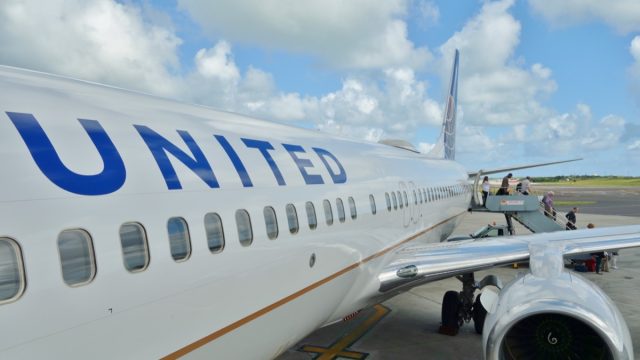
If you’ve gone on a vacation this summer, you’re probably all-too-aware of the issues facing the airline industry. Delays, cancellations, and overall confusion have been defining the summer travel season, as carriers juggle increased demand for travel amid major staffing shortages. While the situation feels like it’s never-ending, United Airlines’ CEO Scott Kirby just spoke out on when we can realistically expect flying to return to normal. Read on to find out what he had to say about the state of the airline industry, and when you can expect smoother skies.
READ THIS NEXT: TSA Will Finally Let Travelers Do This, Starting Now.
Multiple airline CEOs have addressed customer concerns recently.
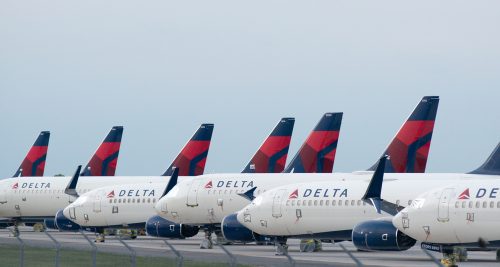
Due to the ongoing criticism surrounding the airline industry, officials have been speaking out to address travelers’ concerns. On July 13, Ed Bastian, CEO of Delta Airlines, apologized to customers who have been impacted by Delta’s delays and operational issues, The Points Guy reported.
“This quarter’s operational performance has not been up to our industry-leading standard,” Bastian said, also telling CNBC that the airline “pushed too hard” and had “scaled back a bit.”
Thanks to these efforts to scale back—mainly by cutting flights—things have actually improved, Bastian said, and as of July 13, the airline had made it through the month with a 99.2 percent completion factor and only 25 cancellations worldwide. But while Bastian indicated that Delta service is looking up this summer, Kirby presented a somewhat grimmer outlook for United.
We might be waiting a while for a return to normalcy.
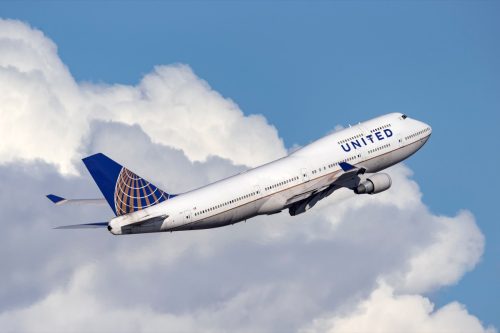
During a July 21 interview with CNBC, Kirby said that flight schedules may not be back to normal until 2023. The CEO pointed to ongoing “infrastructure challenges around aviation,” which have forced United to “be a smaller airline” until the system is able to support its flying.
“We’re not going to get back to normal utilization and normal staffing levels until next summer,” Kirby said. “We’re going to gradually improve—it’s going to take until next summer to get there.”
That’s despite the airline’s “return to profitability” during the last quarter—marking the first time since the COVID-19 pandemic began—as well as the airline’s hiring of additional staff and pilots.
RELATED: For more up-to-date information, sign up for our daily newsletter.
The airline is cutting flights to help better serve customers.
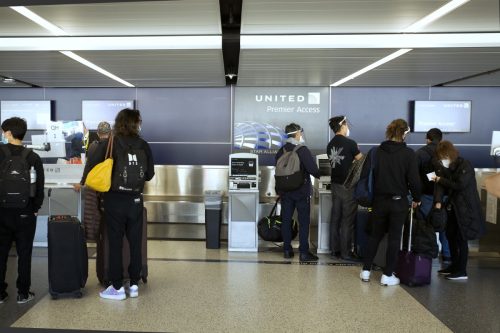
United isn’t alone in its scheduling woes. Like other carriers, United is cutting flights for the remainder of the year to “create more buffer into the system” and ensure that the airline is resilient, Kirby said. In the third quarter, capacity will be cut by 11 percent from the same quarter in 2019, per The Points Guy, with the goal of easing flying woes for travelers.
“The reason we’re pulling down the schedule [is] to do better by the customer,” Kirby said in his interview with CNBC, citing a recent “frustrating” string of cancellations at Heathrow Airport in the U.K.
According to The Points Guy, Kirby also noted on a July 21 earnings call that 200 flights will be cut from Newark Liberty International Airport, which has recently experienced more delays than any other U.S. airport. The flight cuts are due to runway construction, he said, and will span “a few weeks in September.”
Kirby had a warning about booking holiday travel.
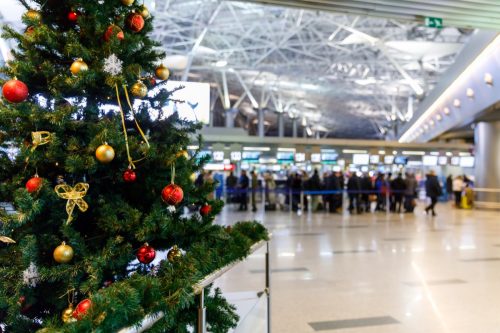
As we’re still enjoying the summer weather, December might seem like a long way away. But if you’re planning to travel to see family or friends this holiday season, you might want to consider booking earlier than you normally would.
When asked about flying later this year, Kirby said United will be pulling the flight schedule back in order to increase reliability. This is again due to the “infrastructure” around aviation, which cannot support a certain flight volume. “Unfortunately, there still are going to be fewer seats available around the whole system,” Kirby said. “You should probably book early for Christmas.”
By December, the airline had anticipated returning to the same levels seen in 2019, but it is now projecting capacity to be down by approximately 10 percent, according to Kirby. “Even though we have the staff, even though we have the resources to do it, we’re going to be smaller just to make sure we can cover for all the things that are outside our control,” he added.